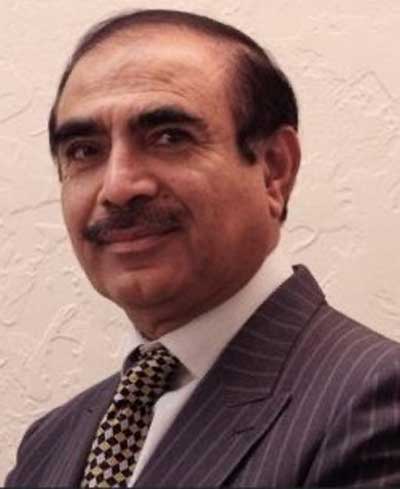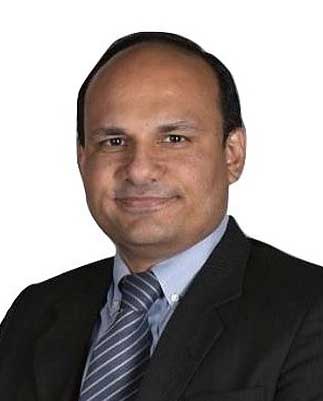The Muslim world, once united under the broad canopy of Islamic civilization-from the Maghreb to Bengal, from Andalusia to Samarkand-now stands fractured into over fifty modern nation-states. These borders were mostly drawn by colonial powers-France, Britain, and later the United States-not to empower Muslims, but to divide, weaken, and control them.
Gone is the unifying force of the Caliphate. Gone are the common currencies, the shared markets, and the strategic coordination of the Ummah. In its place is a geopolitical patchwork of autocracies, democracies, monarchies, and military regimes-each one navigating its own relationship with former colonial powers or new patrons like China, Russia, and the United States.
This colonial legacy is not just physical; it is also psychological. Most Muslim-majority countries today continue to function with administrative, legal, and economic systems inherited from their former occupiers. Their foreign policies are either risk-averse, inward-looking, or tailored to maintain regime survival-not civilizational renewal.
As a result, when existential crises unfold-whether in Gaza or Tehran-there is no united front, no institutional backbone, and often no political will.
In our time, few states remain anchored in the memory and logic of civilization. China and Iran, by most definitions, are the last remaining civilizational states-nations that are not simply territories with a flag and anthem, but the inheritors of long-standing cultural, philosophical, and geopolitical traditions. These countries derive their policies from a deep historical consciousness, rooted in ideas that predate modern nationalism.
By contrast, Western powers function as mercantile nation-states. They are pragmatic, transactional, and ideologically bound not by religion or heritage but by market logic and capital expansion. Western states, despite their cultural variations, are bound together by a centripetal force: the dominance of transnational corporations, defense conglomerates, and financial institutions. Their policies are increasingly shaped less by the people and more by corporate lobbies and deep state interests-interests that, overwhelmingly, see the world through the lens of profit, power, and preservation of hegemony.
This foundational difference is key to understanding why the West acts as a bloc when protecting Israeli interests, while the Muslim world stands divided and inert-even in the face of open genocide and escalating war.
Gaza: A Genocide Met with Silence: The brutal campaign unleashed by Israel on Gaza since October 2023 represents one of the most horrific episodes of collective punishment in modern history. Over 35,000 Palestinians-mostly women and children-have been killed. Hospitals have been bombed, aid convoys denied entry, and starvation weaponized as a deliberate tool of war. Entire families have been erased from civil records.
This is not a war. It is a genocide. And yet, the Muslim world has responded with little more than press releases, symbolic summits, and muted diplomatic protest.
Where are the oil embargoes? The trade boycotts? The coordinated expulsion of Israeli ambassadors? Where is the Islamic equivalent of NATO-ready to at least threaten a deterrent force?
They do not exist, because the Muslim world lacks the institutional architecture, political coordination, and common strategic doctrine necessary for collective action.
Arab governments remain divided between regimes that are militarily dependent on the West (such as Egypt and Jordan), monarchies with covert security pacts with Israel (like some Gulf states), and states too fragile to act (like Yemen, Lebanon, or Sudan). Non-Arab Muslim states such as Turkey, Pakistan, and Indonesia have issued strong moral condemnations but stopped short of any punitive diplomatic or economic measures.
Why such helplessness?: Because the organizing framework of Islamic civilization has been systematically dismantled-first by colonial fragmentation, and then by nationalistic ideologies that privileged ethnicity and state sovereignty over religious and civilizational unity.
Iran: The Last Civilizational Stand?: Iran, with its deep Persian and Islamic roots, is perhaps the only Muslim-majority country attempting to function as a civilizational state. It has crafted an independent foreign policy, built indigenous defense industries, and nurtured a doctrine of strategic depth by supporting resistance movements across the region-from Hezbollah in Lebanon to various Shi’a militias in Iraq and Syria.
This posture has made Iran the primary target of Israel’s “war between the wars”-a strategy of perpetual covert and overt attacks intended to erode Iranian capabilities without triggering full-scale war. In recent months, these attacks have intensified. Iranian nuclear scientists have been assassinated. Commanders of the Revolutionary Guard have been targeted abroad. Civilian infrastructure has been bombed.
Despite this brazen aggression, the Islamic world has failed to rally behind Iran. Not because the threat is unclear-but because of long-standing sectarian and geopolitical rifts.
The Sunni-Shia divide, amplified by decades of proxy conflicts and foreign interference, has poisoned the possibility of meaningful Islamic solidarity. The rivalry between Saudi Arabia and Iran-although currently in a thaw-has left the Muslim world diplomatically paralyzed when it comes to offering collective support for Tehran.
This division is further exacerbated by the perception of Iran as a “Persian power” rather than a pan-Islamic one-a narrative carefully cultivated by Arab elites and their Western backers to isolate Iran within the broader Ummah.
But regardless of these internal differences, the silence of the Muslim world as Israeli missiles kill Iranian generals, scientists, and civilians sends a chilling message: that no Muslim country, no matter how principled or sovereign, can expect solidarity in the face of imperial aggression.
The Myth of the Ummah: The term “Ummah” is recited frequently in sermons, textbooks, and political speeches across the Islamic world. It evokes a sense of unity, shared destiny, and moral fraternity. But in geopolitical terms, the Ummah today is a myth. A powerful myth, no doubt-but one that bears little resemblance to the political reality.
The Organization of Islamic Cooperation (OIC), which should ideally function as the Islamic world’s United Nations, remains weak, underfunded, and divided. There is no Islamic Development Bank capable of coordinating economic sanctions. No joint military command to deter aggression. No Islamic Court to prosecute war crimes against Muslims. No pan-Islamic media outlet to counter the Zionist-dominated Western narrative.
In effect, the Muslim world has moral outrage, but no political muscle.
This structural impotence ensures that atrocities in Gaza continue unpunished, and that Iran’s isolation deepens-even as it bleeds on behalf of a cause (Palestine) that transcends sectarian and national boundaries.
The Way Forward: Civilizational Reconstruction: The road to Islamic unity is neither easy nor immediate. It will not come through empty rhetoric or the occasional summit. It requires a long-term project of civilizational reconstruction-a return to the organizing principles of Islamic governance, ethics, and international solidarity.
This means:
1. Rebuilding Institutions: A pan-Islamic defense council, economic bloc, and media consortium must be established-not to mimic the West, but to serve the unique moral and strategic interests of the Ummah.
2. De-centring Sectarianism: Sunni and Shia scholars, states, and civil society actors must commit to de-escalating theological hostilities and building a common vocabulary of justice and solidarity.
3. Strategic Economic Independence: Muslim states must de-dollarize trade where possible, invest in intra-Muslim commerce, and create financial instruments that reduce dependency on Bretton Woods institutions.
4. Educating for Unity: Muslim youth must be taught the shared civilizational history of the Ummah-from the libraries of Timbuktu to the universities of Baghdad-so that they inherit not just a religion, but a worldview.
5. Redefining Leadership: The Islamic world must move beyond dynasties and autocrats. It needs visionary leaders who think civilizationally, not transactionally. Leaders who do not fear offending the West, but fear failing God and His people.
Conclusion: A Choice between History and Tragedy: The Muslim world today faces a stark choice: remain an amorphous collection of weak states, forever reacting to crises with slogans and sermons-or rise again as a civilizational force capable of protecting its people, honoring its martyrs, and standing against the tide of tyranny.
Gaza will be remembered. So will Iran’s resilience. But history will also record the silence of the rest.
If the Islamic world fails to act now-not just with words, but with unified purpose-it risks becoming not the inheritor of a great civilization, but the graveyard of its memory.
Sign in
Welcome! Log into your account
Forgot your password? Get help
Password recovery
Recover your password
A password will be e-mailed to you.





